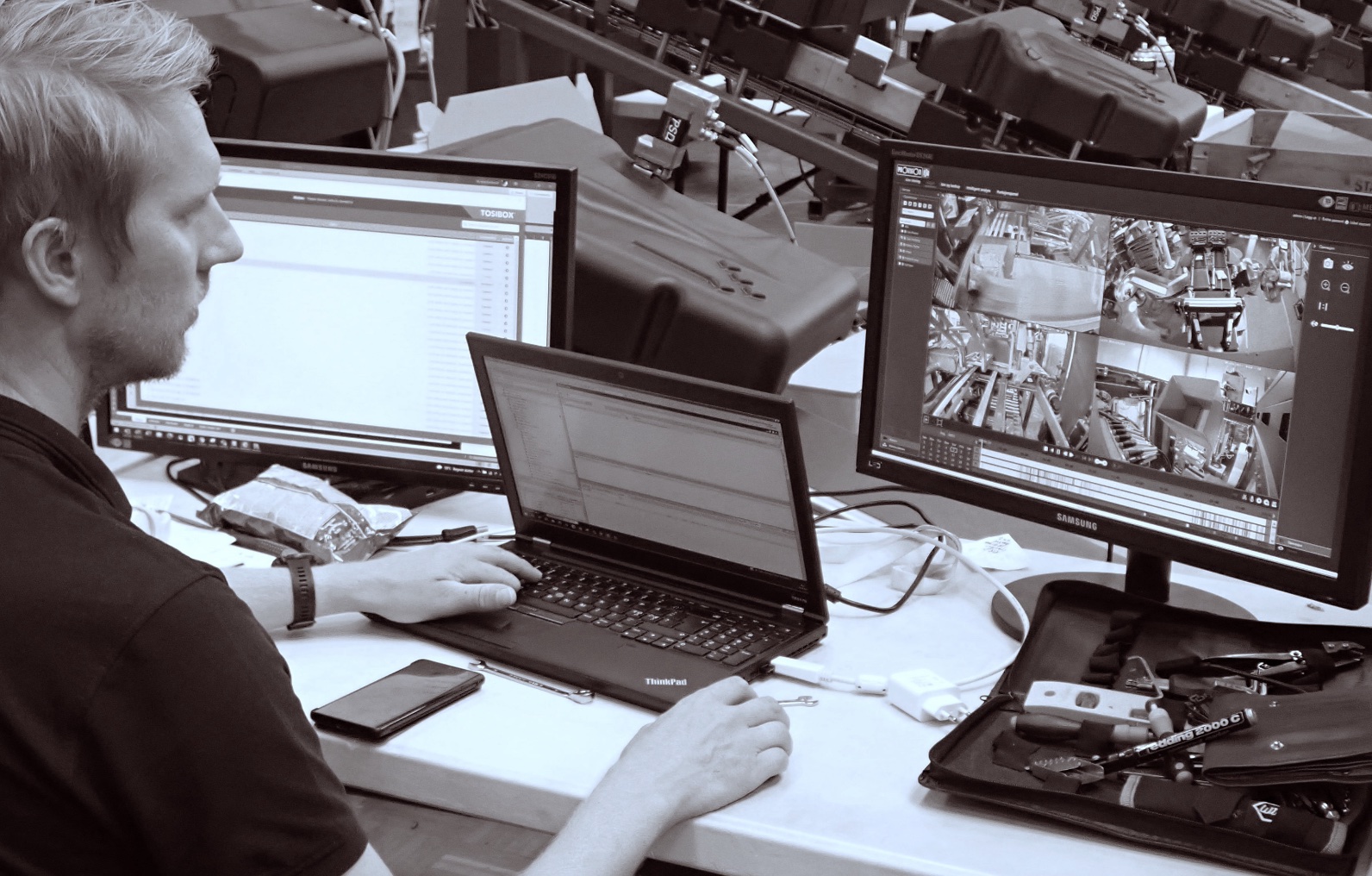
Innovative Quality VET Professional Teacher Training Program for Integration and Deployment of Staffs "Silent Knowledge" within Digitalization of Manufacturing Processes.
An Erasmus+ project within VET for effective digitalization and delivery of blended learning and work-based training system solutions.
Background
Blind belief in digitalization processes often stifles important knowledge. Employees stil too often experience VET systems as less relevant, because the training solutions do not address the staffs "silent knowledge", for instance experiences obtained at work. Thus, VET must acknowledge and better support creation of "silent knowledge" in parallel with creating strategies for digitalization. Educational staff will get the opportunity to join an international instructor training course program to further develop their skills. The teachers are going to implement the blended learning and work based delivery enhanced approach together with their learners. This includes co-creating, negotiating and publishing pedagogical scenarios, activities and tasks, both sector specific and across various manufacturing processes.
What is (not) "Silent Knowledge"?
-
It is not easy to fold into computer programs, digitalization processes, digitalized training programs or even on paper
-
It is indeed many industrial companies' most important resource.
-
Digitalized training programs struggle in including the "silent knowledge", since it is not possible to digitalize it.
-
It could be delivered through work based delivery of training and learning processes applying mentoring support
Objectives
From the world of kitchens, it is well known that chefs perfect their cooking by smelling, tasting, adding ingredients, tasting again and seasoning. Until the dish gets its unique taste – a fruit of "silent knowledge". Such "silent knowledge" it's not easy to fold into computer programs, digitalization processes, digitalized training programs or even on paper! "Silent knowledge", however, is indeed many industrial companies' most important resource.
Various amounts of "silent knowledge" can be found by employees in almost all workplaces. In the seller who understands how to talk to their customers to convince them. And by hairdressers who feel the scissors is an extension of the arm. Unfortunately, the challenge is that digitalized training programs struggle in including the "silent knowledge", since it is not possible to digitalize it.
"Silent knowledge" experiences may only be delivered through work based delivery of training and learning processes - if possible with in-company mentoring support - and in combination with application of recognition of previous learning (RPL) at the individual student level as well as class group level.
At the same time, company managers are increasingly pointing out that digital solutions and digitalization of manufacturing processes are crucial to the business. "We have to adapt, whether we want to or not" is a typical phrase and statement that is too often repeated. But when companies shift all their attention to digital systems, they run the risk of employees not being able to renew their "silent knowledge". In the worst case, that it is deteriorating, whereby the company is thus not allowed to benefit from it.
"Silent knowledge", however, is usually transmitted through trial and error and only together with other personnel. That is precisely why the ancient training model "teacher trainer apprentice" is so effective and well known. This is why blended learning system solutions in VET should apply work based learning and training solutions that demonstrates that a lot of knowledge that sits in the employees' heads and hands, can neither be captured nor stored within digitalization processes alone. This observation is valid for training and learning processes too.
Thus, this project will develop an innovative, new methodology that better support and implement effective digitalization and delivery of blended learning and work based training system solutions that recognize experienced staffs "silent knowledge".
The specific objectives include:
- Investigate, develop, evaluate and validate a methodology for inclusion and application of blended learning in combination with work based training delivery by VET Suppliers in partnership with manufacturing industry companies providing VET Demand.
- Test out the new methodologies and prototypes at national level, including developing an innovative ICT supported framework for effective adaptation, development, reuse and easy sharing of digitalized learning materials within manufacturing VET across 4 national borders, inspired by NDLA in Norway.
- Best practice sharing of results through developing, evaluating, validating and delivery of an international hands on instructor training course program for VET teaching professionals.
- Implement and transfer the instructor training course for teachers professionals into a capacity building framework that enhances the importance and the added value of "silent knowledge" within digitalization of manufacturing processes, and the subsequent digitalization of VET learning processes.
Results
This project will be the first European funded training project that start addressing the importance of staffs "silent knowledge". That is implicit or tacit knowledge, which is transmitted through trial and error together with others. That is precisely why the ancient training model "teacher trainer apprentice" is so effective and well known. This is why blended learning system solutions in VET should apply work based learning and training delivery solutions that demonstrate that a lot of knowledge that sits in the employees' heads and hands, can neither be captured nor stored within digitalization processes alone.
Paradoxically, today it has become the case that the two most important strategies of the business sector – "digitizing the business" and "investing in employee knowledge" – too often work against each other if they are not carefully balanced. Successful digitalization of work operations and manufacturing processes will be better supported and integrated if VET combine blended learning with work based learning and training processes that
- Acknowledge that the "silent knowledge" of the employees is important to the company.
- Enable their staff to actively use it.
Modern VET systems should integrate and apply work based learning to make them relevant to their core tasks and not stand in their way.
Manufacturing industry will through national providers of VET and higher VET, get access to state of the art training system solutions that apply modern technologies to reduce the costs of providing the training, will at the same time maintaining the quality of the training by carrying out digitalization processes.
"Silent Knowledge" will be addressed by
-
focusing on implicit or tacit knowledge, which is transmitted through trial and error together with others and obtained through experience at work,
-
understanding that a lot of knowledge that sits in the employees' heads and hands, can neither be captured nor stored within digitalization processes alone. It can support the creation of it through work-based learning,
-
acknowledging that the "Silent Knowledge" of the employees is important to the company. It is indeed one of the most important resources.
